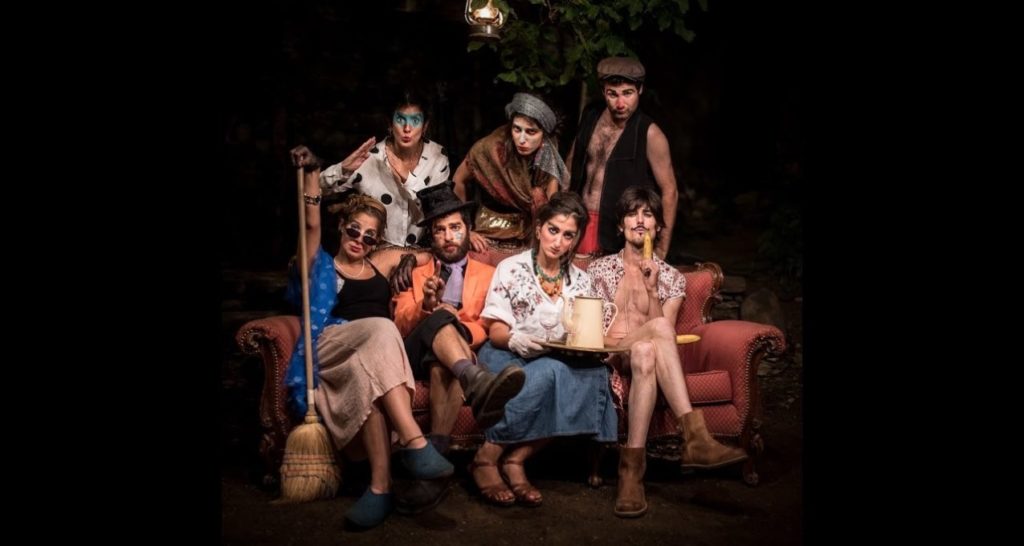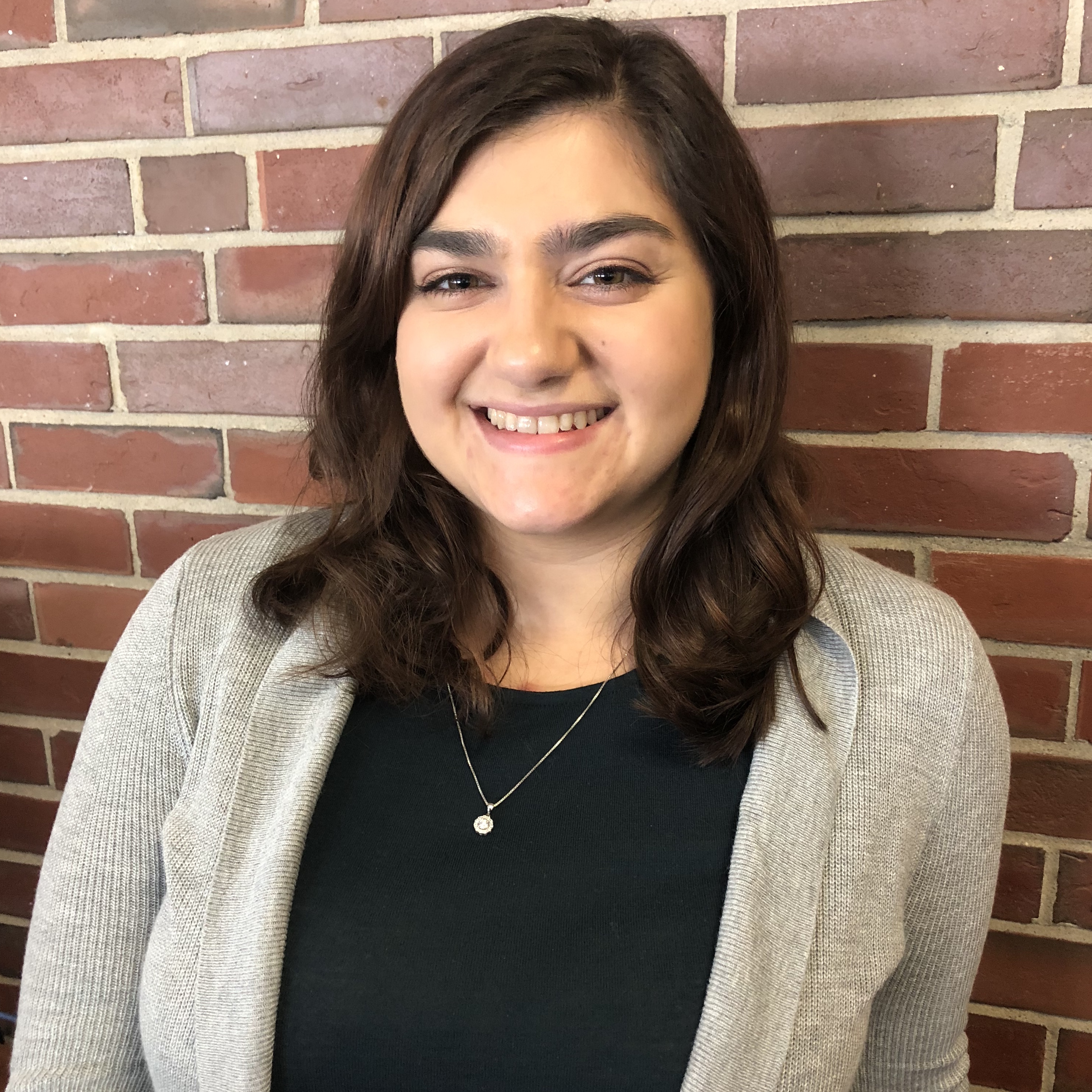
The genre-bending Collectif Medz Bazar was formed in 2012 on a boat in a Parisian canal. The Péniche Anako, the boat in question, was the first Parisian venue to host jam sessions for Middle-Eastern, Balkan, and Caucasian musicians, according to the band. The Paris-based act has decreased in size since its jam session days on the water, but as the members kept collaborating, their artistic ambitions emerged and merged.
This March, Collectif Medz Bazar is heading over to the United States to perform at SXSW, and will be stopping in Boston on the way. We had a chance to interview the band in advance of their performance at ONCE Somerville on March 18th.
Collectif (“collective” in French) seems an appropriate label considering this melding of nationalities, ethnicities, and languages. Today, the band is made up of six members: Shushan Kerovpyan, Vahan Kerovpyan, Elâ Nuroğlu, Marius Pibarot, Ezgi Sevgi Can, and Sevana Tchakerian—all from varying French, Armenian, Turkish, and American backgrounds. This fusion of cultures is essential to what makes the band so special—particularly when considering the continuing tension between Armenia and Turkey due to the Turkish government’s persistent denial of the Armenian Genocide.
We make music together out of common passion and love for each other. Medz Bazar has been a school for all of us to learn to listen to each other, communicate, creating beauty collectively.
While Collectif Medz Bazar has previously made clear their belief in the importance of communication and willingness for dialogue between Armenians and Turks, the group did not form with the intention of making a specific statement about their hopes for an improved Armenian-Turkish relationship. “We make music together out of common passion and love for each other. Medz Bazar has been a school for all of us to learn to listen to each other, communicate, creating beauty collectively. It has been a great lesson of diplomacy and we all grew a lot through our musical and human dialogues,” they explained.
The colorful blending and exchange of the band’s various identities is evident when listening to a discography that features some remastered folk songs from Turkey and Armenia and original tunes that are “inspired by music genres [the band] vibes to, whether it be hip-hop, jazz, folk, trip-hop, musette, or anything [they] like!”
Instead of confining themselves to predefined genres, the band self-identifies as “urban diaspora music.” When asked to elaborate on this term, they explained: “We don’t play traditional music, we are not a traditional or folk band in the strict sense (we don’t play exclusively traditional instruments), our music also has rap, jazz elements, trip-hop elements…” They went on to address the term “diaspora” and how their various origins play into this term and influence their music style. “So we have all these origins and are inspired by music from Turkey, Armenia, but also the USA (bluegrass for instance), and on top of that we have our Parisian identity; our common language in the band is French, so ‘diasporan urban music’ is our consensus…for now!”
It’s difficult to describe their sound without listening to their music, so instead, we asked the band to help us visualize their most recent album as a room. Their response was representative of their cultural backgrounds—be it traditional dances, liquor specific to the Middle East, or the generous hospitality of their people. “If Poshmanella was a room, it would be extremely colorful, with intricate combinations and complex but harmonious drawings on the walls, and vast enough to host all our friends from around the world we made on the way!” they shared. “Wood furniture and warm atmosphere, soft sunlight coming from the large windows, lanterns hanging, a fireplace, people jamming and dancing halay (circle dance). A big table with raki and whisky, delicious and healthy food including gluten-free pastries (Medz Bazar is 1/3 gluten free!)…and there would be a few animals walking around, like an elephant, a horse and of course, a fish on a tree!”
As for their more recent work, Collectif Medz Bazar is in the process of “mixing and mastering” their upcoming album. “Recently, we have all been writing love songs: falling in love, one-sided love, separating, (un)defining what we want from the people we love… Love has been a great source of inspiration in our creative process!”
Join them at ONCE on Monday, March 18 to hear them live!
Editor’s Note: This interview, which appeared originally in the publication Sound of Boston on March 11, 2019, announces an upcoming concert in our local community from the band Collectif Medz Bazar. We recently ran a press release announcing their performance, which will take place on March 18 at ONCE Somerville. Some of the reactions to this announcement were reflective of a larger discourse surrounding the band, which is caused by its repertoire (notably, the fact that some of their songs are sung in Turkish). Ultimately, we wish to remind readers that politics have no bearing in our willingness to publish the announcement of the band’s performance or the following interview, which offers insight into the role they play as cultural ambassadors, whose work is valuable and worthy of consideration



I’m so excited to see them perform LIVE! I love the fact that they use the Armenian language in new creative ways
Thank you AW for publishing this background information about this amazing band. It is great that Collectif Medz Bazar is performing in SXSW. They will definitely be good ambassadors for giving the listeners a good taste of music from those regions with the creative songs and arrangements that they have in their repertoire. They might say that they are not a traditional or folk band, but I hear a lot of folk music within their songs. May be their music is the new “diasporan folk”. And yes, their message of inclusivity by action says a lot about their progressiveness. They and other progressives from both Armenian and Turkish sides have started the dialogue and we should follow them since honest dialogue is the only way to resolve issues and conflicts. Can’t wait to see them performing in Boston.
So much of our history is about being labeled and dealt with bluntly as a mass, not individuals but a lump sum. What I like about Collectif Medz Bazar’s approach is that they remind us that all cultures are individuals connected with lots of other individuals within and across cultures. This approach emphasizes and reinforces everyone’s humanity—reaching across boundaries as human beings first lays the groundwork for a better future for everyone. Yes, this is a very rosy picture I am painting in a very complicated world, but ideals that are good for humanity are good for us.
I would love to see the band perform in Los Angeles area, please let me know if you are planning a concert here, thanks.
OK. I get it. It’s not about Turkish-Armenian Reconciliation but it is about Turkish-Armenian Reconciliation. It’s not political but it is political. It’s not about supporting Turkish language songs but it is about supporting Turkish language songs. What kind of double talk is this?